Literary Criticism Quotes
Quotes tagged as "literary-criticism"
Showing 1-30 of 432

“Some who have read the book, or at any rate have reviewed it, have found it boring, absurd, or contemptible, and I have no cause to complain, since I have similar opinions of their works, or of the kinds of writing that they evidently prefer.”
― The Lord of the Rings
― The Lord of the Rings
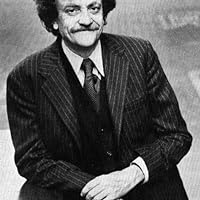
“As for literary criticism in general: I have long felt that any reviewer who expresses rage and loathing for a novel or a play or a poem is preposterous. He or she is like a person who has put on full armor and attacked a hot fudge sundae or a banana split.”
― Palm Sunday: An Autobiographical Collage
― Palm Sunday: An Autobiographical Collage
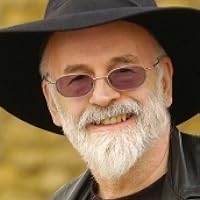
“In theory it was, around now, Literature. Susan hated Literature. She'd much prefer to read a good book.”
― Soul Music
― Soul Music

“If you show someone something you've written, you give them a sharpened stake, lie down in your coffin, and say, ‘When you’re ready’.”
― Black Swan Green
― Black Swan Green

“If critics say your work stinks it's because they want it to stink and they can make it stink by scaring you into conformity with their comfortable little standards. Standards so low that they can no longer be considered "dangerous" but set in place in their compartmental understandings.”
―
―
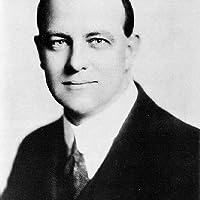
“A certain critic -- for such men, I regret to say, do exist -- made the nasty remark about my last novel that it contained 'all the old Wodehouse characters under different names.' He has probably by now been eaten by bears, like the children who made mock of the prophet Elisha: but if he still survives he will not be able to make a similar charge against Summer Lightning. With my superior intelligence, I have out-generalled the man this time by putting in all the old Wodehouse characters under the same names. Pretty silly it will make him feel, I rather fancy.”
― Summer Moonshine
― Summer Moonshine

“That's why literature is so fascinating. It's always up for interpretation, and could be a hundred different things to a hundred different people. It's never the same thing twice.”
― Snow Like Ashes
― Snow Like Ashes

“I would rather be attacked than unnoticed. For the worst thing you can do to an author is to be silent as to his works.”
―
―
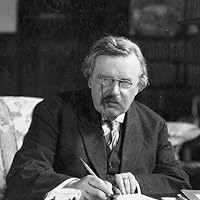
“But there is in everything a reasonable division of labour. I have written the book, and nothing on earth would induce me to read it.”
―
―

“Dismissing fantasy writing because some of it is bad is exactly like saying I'm not reading Jane Eyre because it is a romance and I know romance is crap.”
―
―

“He writes the worst English that I have ever encountered. It reminds me of a string of wet sponges; it reminds me of tattered washing on the line; it reminds me of stale bean soup, of college yells, of dogs barking idiotically through endless nights. It is so bad that a sort of grandeur creeps into it. It drags itself out of the dark abysm of pish, and crawls insanely up the topmost pinnacle of posh. It is rumble and bumble. It is flap and doodle. It is balder and dash.
(writing about US President Warren G. Harding)”
―
(writing about US President Warren G. Harding)”
―

“Asking a working writer what he thinks about critics is like asking a lamp-post what it feels about dogs."
[Time Magazine, October 31, 1977]”
―
[Time Magazine, October 31, 1977]”
―

“Nobody is capable of of free speech unless he knows how to use language, and such knowledge is not a gift: it has to learned and worked at. [p.93]”
― The Educated Imagination
― The Educated Imagination

“CUSTOMER (to her friend): What's this literary criticism section? Is it for books that complain about other books?”
― Weird Things Customers Say in Bookshops
― Weird Things Customers Say in Bookshops

“Everywhere I go, I am asked if I think university stifles writers. My opinion is that it doesn't stifle enough of them.”
―
―

“Tolkien, who created this marvellous vehicle, doesn't go anywhere in it. He just sits where he is. What I mean by that is that he always seems to be looking backwards, to a greater and more golden past; and what's more he doesn't allow girls or women any important part in the story at all. Life is bigger and more interesting than The Lord of the Rings thinks it is.”
―
―

“For a while, Criticism travels side by side with the Work, then Criticism vanishes and it's the Readers who keep pace. The journey may be long or short. Then the Readers die one by one and the Work continues on alone, although a new Criticism and new Readers gradually fall into step with it along its path. Then Criticism dies again and the Readers die again and the Work passes over a trail of bones on its journey toward solitude. To come near the work, to sail in her wake, is a sign of certain death, but new Criticism and new Readers approach her tirelessly and relentlessly and are devoured by time and speed. Finally the Work journeys irremediably alone in the Great Vastness. And one day the Work dies, as all things must die and come to an end: the Sun and the Earth and the Solar System and the Galaxy and the farthest reaches of man's memory. Everything that begins as comedy ends in tragedy.”
― The Savage Detectives
― The Savage Detectives
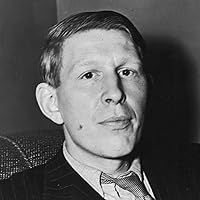
“Attacking bad books is not only a waste of time but also bad for the character. If I find a book really bad, the only interest I can derive from writing about it has to come from myself, from such display of intelligence, wit and malice as I can contrive. One cannot review a bad book without showing off.”
―
―

“Life, of course, never gets anyone's entire attention. Death always remains interesting, pulls us, draws us. As sleep is necessary to our physiology, so depression seems necessary to our psychic economy. In some secret way, Thanatos nourishes Eros as well as opposes it. The two principles work in covert concert; though in most of us Eros dominates, in none of us is Thanatos completely subdued. However-and this is the paradox of suicide-to take one's life is to behave in a more active, assertive, "erotic" way than to helplessly watch as one's life is taken away from one by inevitable mortality. Suicide thus engages with both the death-hating and the death-loving parts of us: on some level, perhaps, we may envy the suicide even as we pity him. It has frequently been asked whether the poetry of Plath would have so aroused the attention of the world if Plath had not killed herself. I would agree with those who say no. The death-ridden poems move us and electrify us because of our knowledge of what happened. Alvarez has observed that the late poems read as if they were written posthumously, but they do so only because a death actually took place. "When I am talking about the weather / I know what I am talking about," Kurt Schwitters writes in a Dada poem (which I have quoted in its entirety). When Plath is talking about the death wish, she knows what she is talking about. In 1966, Anne Sexton, who committed suicide eleven years after Plath, wrote a poem entitled "Wanting to Die," in which these startlingly informative lines appear: But suicides have a special language.
Like carpenters they want to know which tools.
They never ask why build.
When, in the opening of "Lady Lazarus," Plath triumphantly exclaims, "I have done it again," and, later in the poem, writes, Dying Is an art, like everything else.
I do it exceptionally well.
I do it so it feels like hell.
I do it so it feels real.
I guess you could say I've a call, we can only share her elation. We know we are in the presence of a master builder.”
― The Silent Woman: Sylvia Plath and Ted Hughes
Like carpenters they want to know which tools.
They never ask why build.
When, in the opening of "Lady Lazarus," Plath triumphantly exclaims, "I have done it again," and, later in the poem, writes, Dying Is an art, like everything else.
I do it exceptionally well.
I do it so it feels like hell.
I do it so it feels real.
I guess you could say I've a call, we can only share her elation. We know we are in the presence of a master builder.”
― The Silent Woman: Sylvia Plath and Ted Hughes

“What readers ask nowadays in a book is that it should improve, instruct and elevate. This book wouldn't elevate a cow. I cannot conscientiously recommend it for any useful purposes whatever. All I can suggest is that when you get tired of reading "the best hundred books," you may take this for half an hour. It will be a change.”
― Idle Thoughts of an Idle Fellow
― Idle Thoughts of an Idle Fellow

“I know that an author must be brave enough to chop away clinging tentacles of good taste for the sake of a great work. But this is no great work, you see.”
―
―

“Several times he had to flatten himself against the shelves as a thesaurus thundered by. He waited patiently as a herd of Critters crawled past, grazing on the contents of the choicer books and leaving behind them piles of small slim volumes of literary criticism.”
― Guards! Guards!
― Guards! Guards!

“Reading a novel after reading semiotic theory was like jogging empty-handed after jogging with hand weights. What exquisite guilt she felt, wickedly enjoying narrative! Madeleine felt safe with a nineteenth century novel. There were going to be people in it. Something was going to happen to them in a place resembling the world. Then too there were lots of weddings in Wharton and Austen. There were all kinds of irresistible gloomy men.”
― The Marriage Plot
― The Marriage Plot

“I ran across an excerpt today (in English translation) of some dialogue/narration from the modern popular writer, Paulo Coelho in his book: Aleph.(Note: bracketed text is mine.)... 'I spoke to three scholars,' [the character says 'at last.'] ...two of them said that, after death, the [sic (misprint, fault of the publisher)] just go to Paradise. The third one, though, told me to consult some verses from the Koran. [end quote]' ...I can see that he's excited. [narrator]' ...Now I have many positive things to say about Coelho: He is respectable, inspiring as a man, a truth-seeker, and an appealing writer; but one should hesitate to call him a 'literary' writer based on this quote. A 'literary' author knows that a character's excitement should be 'shown' in his or her dialogue and not in the narrator's commentary on it. Advice for Coelho: Remove the 'I can see that he's excited' sentence and show his excitement in the phrasing of his quote.(Now, in defense of Coelho, I am firmly of the opinion, having myself written plenty of prose that is flawed, that a novelist should be forgiven for slipping here and there.)Lastly, it appears that a belief in reincarnation is of great interest to Mr. Coelho ... Just think! He is a man who has achieved, (as Leonard Cohen would call it), 'a remote human possibility.' He has won lots of fame and tons of money. And yet, how his preoccupation with reincarnation—none other than an interest in being born again as somebody else—suggests that he is not happy!”
―
―

“How can the Book Award Judges’ decision be right when we know that submitting the same books to different panels will result in different winners!”
―
―

“Periods' are largely an invention of the historians. The poets
themselves are not conscious of living in any period and refuse to conform to the scheme.”
― English Literature in the Sixteenth Century: Excluding Drama
themselves are not conscious of living in any period and refuse to conform to the scheme.”
― English Literature in the Sixteenth Century: Excluding Drama
All Quotes
|
My Quotes
|
Add A Quote
Browse By Tag
- Love Quotes 97k
- Life Quotes 75.5k
- Inspirational Quotes 72.5k
- Humor Quotes 43.5k
- Philosophy Quotes 29.5k
- Inspirational Quotes Quotes 27k
- God Quotes 26k
- Truth Quotes 23.5k
- Wisdom Quotes 23.5k
- Romance Quotes 23k
- Poetry Quotes 22k
- Death Quotes 20k
- Happiness Quotes 18.5k
- Life Lessons Quotes 18.5k
- Hope Quotes 18k
- Faith Quotes 18k
- Quotes Quotes 16.5k
- Inspiration Quotes 16.5k
- Spirituality Quotes 15k
- Religion Quotes 15k
- Motivational Quotes 15k
- Writing Quotes 14.5k
- Relationships Quotes 14.5k
- Life Quotes Quotes 14k
- Love Quotes Quotes 13.5k
- Success Quotes 13.5k
- Time Quotes 12.5k
- Motivation Quotes 12k
- Science Quotes 11.5k
- Knowledge Quotes 11k




